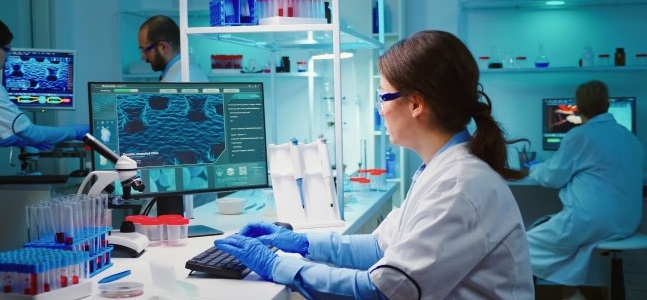DNA promifen alpha pharma buy in australia online – block puzzle games for strategy enthusiasts testing is important in fields like medicine, criminal forensics, and ancestral medical history. Traditionally, researchers obtain reliable DNA samples from sources such as blood, saliva, and hair follicles.
However, there may be cases when these typical samples are not available. One such situation is after burning the body. The cremation (burning) process involves a lot of heat, which raises the question, “Can you get DNA from ashes? can any usable DNA be recovered from the ashes of a burned individual?
This question is very important for legal cases, historical inquiries and to determine family relationships.
Burning Process and Destruction of DNA
It is very important to know about the Cremation process. There is a lot of heat in Cremation chambers which reach temperatures exceeding 1400 °F (760 °C). The designers have designed these extreme conditions to break the body down to its basic mineral components.
DNA is a molecule that carries our genetic blueprints. It can be destroyed easily. Intense heat causes DNA strands to break down, making analysis far more difficult – and mostly, impossible. After the cremation process, we break down the remaining bone fragments to make a powder. This further disrupts any potentially remaining DNA that might have survived the heat.
Problems in DNA Extraction from Ashes
- DNA destruction: As said earlier, the intense heat of cremation severely damages DNA. This damage makes it difficult for standard DNA analysis techniques to produce reliable results.
- Contamination: There is a high risk that ashes get mixed with other sources such as wood when wood is used for burning. Further, this could be from anyone who handles the ashes – funeral staff, family members, or even airborne DNA in a lab environment. Any contamination makes it difficult for reliable results.
- Limited sample size: The amount of ash containing potential sources of good DNA (bone or tooth fragments) is often very small. This makes the extraction process even more complex which requires specialized techniques to maximize the chances of a successful result.
When DNA from Ashes is Useful
Except for these challenges, there are situations when DNA extraction attempts from ashes are the only feasible path:
- Forensic identification: In events like fires, explosions, or other disasters where heat severely damages remains, DNA analysis of ashes may be the only way to identify victims.
- Paternity cases: When a potential father has passed away and been cremated, DNA testing on the ashes provides a way to resolve paternity disputes. However, in such a situation KinTouch Paternity test kit is also the best solution.
Read out how Kintouch helps to determine paternity with siblings, grandfather, uncle/aunt, cousins, and other relations DNA test with more than 99% accuracy.
- Historical figures: Sometimes, researchers use ashes to get genetic information of notable figures from the past. This can provide insights into ancestry, and health issues, or confirm the identity of remains.
Technology and Success Rates
Extracting usable DNA from ashes requires specialized lab techniques far more sensitive than those used for standard DNA sources. These techniques isolate and amplify any tiny pieces of DNA that may have survived the cremation process. However, the success rate of DNA extraction from ashes is highly variable. Multiple factors affect this success rate including:
- Condition of remains before cremation: The overall health of the individual before death and the circumstances surrounding their demise can affect DNA.
- Handling of ashes: Minimizing contamination throughout the collection and storage of ashes is important in saving or collecting any remaining DNA.
Conclusion
While it is possible in some cases to extract DNA from ashes, it is a complex and often unpredictable practice. The intense heat of cremation significantly destroys DNA, and the process of obtaining a usable sample is also affected with contamination. It’s important to work with specialized laboratories that have the expertise and technology to handle such delicate samples.
Finally, it’s important to know the ethical considerations of analyzing DNA from cremated remains. The decision to pursue such an analysis should be approached with the utmost respect for the deceased and their loved ones.




